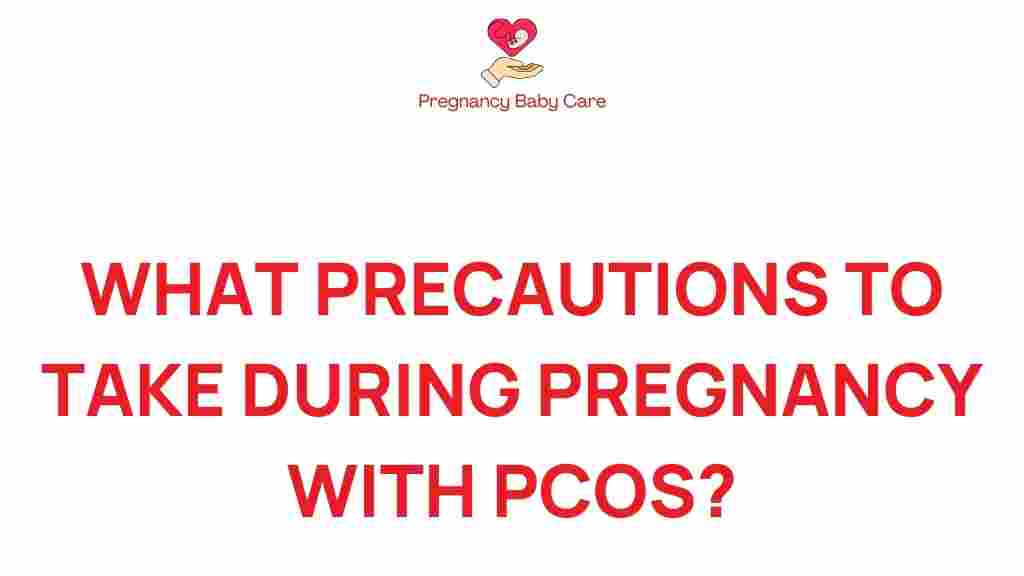Pregnancy can be an exciting yet challenging journey, especially for women with Polycystic Ovary Syndrome (PCOS). This hormonal disorder can significantly affect fertility, pregnancy health, and the overall experience of expecting mothers. Understanding the necessary precautions, symptoms, and care required during pregnancy with PCOS is essential for a successful and healthy outcome. This article will provide you with essential advice and support to navigate the challenges of pregnancy with PCOS, ensuring both mother and baby remain healthy throughout the journey.
Understanding PCOS and Its Impact on Pregnancy
Polycystic Ovary Syndrome (PCOS) is a common hormonal disorder affecting women of reproductive age. It is characterized by an imbalance of hormones, which can lead to various symptoms such as:
- Irregular menstrual cycles
- Excessive body hair (hirsutism)
- Weight gain
- Acne and skin issues
- Ovarian cysts
For women with PCOS, becoming pregnant can be more challenging due to irregular ovulation and hormonal imbalances. However, with the right precautions, support, and medical care, many women with PCOS can achieve a healthy pregnancy.
Precautions for a Healthy Pregnancy with PCOS
When pregnant with PCOS, taking specific precautions can help manage symptoms and enhance both fertility and overall health. Here are some essential precautions to consider:
1. Regular Medical Check-ups
Regular visits to a healthcare provider are crucial for monitoring the health of both the mother and the baby. Depending on individual health needs, these check-ups may include:
- Blood tests to monitor hormone levels
- Ultrasounds to check fetal development
- Screening for gestational diabetes
2. Balanced Diet and Nutrition
A well-balanced diet can help manage PCOS symptoms and support a healthy pregnancy. Focus on:
- Whole grains, fruits, and vegetables
- Lean proteins and healthy fats
- Limiting processed foods and sugars
Consider consulting with a nutritionist to create a personalized meal plan that meets your needs during pregnancy.
3. Maintaining a Healthy Weight
Weight management is essential for women with PCOS. Being overweight can exacerbate symptoms and complicate pregnancy. Aim for a healthy weight through:
- Regular physical activity (after consulting your healthcare provider)
- A balanced diet
4. Managing Stress
Stress can affect hormone levels and overall health. Engage in stress-reducing activities such as:
- Yoga
- Meditation
- Walking or gentle exercise
5. Monitoring Symptoms
Keeping track of PCOS symptoms during pregnancy is important. This includes:
- Monitoring mood changes
- Tracking weight gain
- Noting any irregularities in fetal movement
Discuss any concerns with your healthcare provider promptly.
Fertility Considerations for Women with PCOS
For many women with PCOS, fertility can be a concern. Here are some considerations and advice for enhancing fertility:
1. Medications and Treatments
Consult with a reproductive endocrinologist about medications that can help regulate ovulation, such as:
- Clomiphene citrate (Clomid)
- Metformin
2. Lifestyle Changes
Incorporating healthy habits can improve fertility. Focus on:
- Regular exercise
- A balanced diet
- Maintaining a healthy weight
3. Support Systems
Connecting with support groups or forums can provide emotional support and practical advice from others who understand the challenges of PCOS and pregnancy. Consider visiting PCOS support forums for community advice.
Common Symptoms During Pregnancy with PCOS
Pregnancy with PCOS can lead to unique symptoms that require attention. Some common symptoms include:
- Increased fatigue
- Morning sickness
- Weight changes
- Emotional fluctuations
While some symptoms may be typical of pregnancy, others may indicate a need for medical intervention. Always communicate any unusual symptoms with your healthcare provider.
Step-by-Step Care for Pregnancy with PCOS
Here is a step-by-step guide to caring for yourself during pregnancy with PCOS:
Step 1: Schedule Regular Appointments
Make sure to have a comprehensive plan for regular prenatal visits. These appointments are crucial for monitoring your health and the baby’s development.
Step 2: Keep a Health Journal
Document your symptoms, diet, and exercise activities. This journal can be a valuable resource for discussions with your healthcare provider.
Step 3: Engage in Healthy Lifestyle Choices
Adopt a balanced diet, exercise regularly, and manage stress. These choices will positively impact your health and the health of your baby.
Step 4: Seek Emotional Support
Don’t hesitate to seek emotional support from friends, family, or professionals. Mental health is just as important as physical health during pregnancy.
Step 5: Educate Yourself
Learn more about PCOS, pregnancy, and maternal health. Knowledge empowers you to make informed decisions about your care.
Troubleshooting Common Issues
Here are some common issues faced by pregnant women with PCOS and tips on how to troubleshoot them:
1. Irregular Blood Sugar Levels
Monitor your blood sugar levels regularly. If you notice spikes, consult with your healthcare provider about dietary changes or medications.
2. Weight Management Challenges
If you struggle with weight gain or loss, seek guidance from a nutritionist who understands PCOS and pregnancy.
3. Emotional Fluctuations
Emotional ups and downs are common. Consider talking to a therapist if you feel overwhelmed.
4. Complications
If you experience severe symptoms such as excessive bleeding, severe pain, or other concerning signs, contact your healthcare provider immediately.
Conclusion
Pregnancy with PCOS can present unique challenges, but with the right precautions and support, women can navigate this journey successfully. By understanding the symptoms, maintaining a healthy lifestyle, and seeking regular medical care, you can enhance your fertility and ensure a healthy pregnancy. Remember to utilize the resources available for support, and don’t hesitate to reach out to healthcare professionals for tailored advice. Your health and the health of your baby are paramount, so prioritize care and self-advocacy throughout your pregnancy.
For more information on PCOS and pregnancy, consider visiting health resources on PCOS to get the latest research and advice.
This article is in the category Pregnancy and created by PregnancyBabyCare Team
